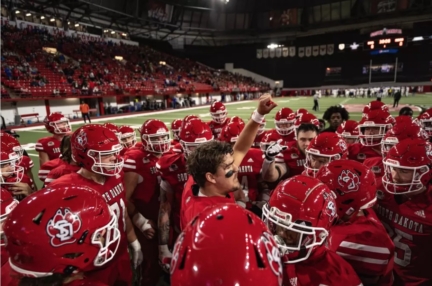As the landscape of Name, Image, and Likeness (NIL) deals in college athletics continues to evolve, it’s essential for athletes, universities, and brands to navigate the complex world of data privacy. We will explore the potential risks associated with NIL dealings and provide guidance on how to mitigate them. NIL Rules For International Students
By understanding the intricacies of data privacy, we can facilitate a safer and more trustworthy environment for all parties involved in athlete endorsements. Ensuring that NIL deals remain legally compliant and transparent is essential for preserving the trust of fans and followers.
Key Takeaways
- Understand the complexities of NIL deals and their implications on data privacy.
- Recognize the importance of transparency in athlete endorsements.
- Mitigate potential risks associated with NIL dealings.
- Ensure compliance with data privacy regulations in college athletics.
- Foster a trustworthy environment for athletes, universities, and brands.
The New Landscape of NIL Deals in College Athletics
The NCAA’s shift in NIL policies has opened up unprecedented opportunities for student-athletes. This change has transformed the college athletics landscape, allowing athletes to profit from their name, image, and likeness. NIL Rules International Athletes
Evolution of NIL Policies in the NCAA
The NCAA’s evolution on NIL policies has been significant. Previously, strict rules prohibited student-athletes from profiting from their NIL. However, with changing legislation and growing public pressure, the NCAA has adapted its stance, creating a more flexible environment for athletes to engage in endorsement deals.
Current State of NIL Opportunities for Student-Athletes
Today, student-athletes can capitalize on various opportunities, including social media promotions, autograph signings, and appearances. Key areas of opportunity include:
- Social media influencer marketing
- Personal appearances and events
- Merchandising and licensing
The Intersection of NIL and Personal Data
As NIL deals become more prevalent, the intersection with personal data grows. Athletes must be aware that their personal data is being collected and used by brands and sponsors. It’s crucial to understand the privacy implications of these deals to protect sensitive information. NIL Niche Strategy
By navigating these changes and understanding the opportunities and risks, we can ensure that student-athletes are both empowered and protected in the new NIL landscape.
Understanding Privacy Risks in NIL Agreements
The rise of NIL agreements in college sports has introduced new privacy concerns that athletes, universities, and brands must navigate. As these deals become more complex, the potential for privacy risks grows, making it essential to understand the types of personal data involved and the vulnerabilities that can lead to data breaches.
Types of Personal Data Collected in NIL Deals
NIL agreements often involve the collection of various types of personal data, including:
- Personally Identifiable Information (PII): Names, images, and likenesses of athletes.
- Social Media Data: Engagement metrics, follower counts, and content interactions.
- Financial Information: Details related to endorsement deals and payment structures.
This data is used to promote brands, products, and services through athlete endorsements, creating significant value for both parties. However, it also poses substantial privacy risks if not managed properly. NIL Organization Tools
Common Privacy Vulnerabilities in Athlete Endorsements
Athlete endorsements can be vulnerable to various privacy risks, including:
- Unauthorized Data Sharing: Personal data shared with third parties without consent.
- Insufficient Data Protection: Lack of robust security measures to safeguard personal data.
- Data Breaches: Unauthorized access to sensitive information.
Real-World Examples of Data Privacy Breaches in Sports Marketing
Several high-profile cases have highlighted the importance of data privacy in sports marketing. For instance, a major sports brand experienced a data breach that exposed the personal data of numerous athletes and customers. Such incidents underscore the need for robust data protection measures in NIL agreements.
By understanding these risks and taking proactive steps to mitigate them, we can better protect the personal data of athletes and maintain the integrity of NIL deals. NIL Power Players Women
Federal and State Regulations Governing Athlete Data
As the landscape of Name, Image, and Likeness (NIL) deals in college athletics continues to evolve, understanding the regulatory framework governing athlete data becomes increasingly crucial. The intersection of NIL agreements and data privacy regulations creates a complex environment that stakeholders must navigate to ensure compliance and protect athlete rights.
CCPA, GDPR, and Other Applicable Privacy Laws
The California Consumer Privacy Act (CCPA) and the General Data Protection Regulation (GDPR) are two significant privacy laws that impact NIL deals. The CCPA, enacted in California, grants consumers certain rights regarding their personal data, including the right to know what data is being collected and the right to opt-out of data sale. The GDPR, applicable in the European Union, sets a comprehensive framework for data protection, emphasizing transparency, consent, and data subject rights.
Other privacy laws, such as the Virginia Consumer Data Protection Act and the Colorado Privacy Act, are emerging, creating a patchwork of regulations that NIL stakeholders must comply with. Understanding these laws is essential for managing athlete data effectively.
State-Specific NIL Legislation and Privacy Provisions
Various states have enacted or proposed NIL legislation, some of which include privacy provisions. For instance, some state laws require athlete consent for data collection or mandate disclosure of data practices. Understanding these state-specific regulations is crucial for compliance.
NCAA Guidelines on Data Protection
The NCAA has issued guidelines on data protection in the context of NIL deals, emphasizing the importance of safeguarding athlete data. These guidelines provide a framework for universities and NIL stakeholders to follow.
Compliance Requirements for Universities
Universities must comply with relevant data protection regulations when facilitating NIL deals. This includes implementing appropriate data security measures, providing transparency on data practices, and ensuring athlete consent.
Athlete Rights Under Current Regulations
Athletes have certain rights under current regulations, including the right to access their data, opt-out of data collection, and seek redress for data breaches. Understanding these rights is essential for both athletes and NIL stakeholders.
| Regulation | Key Provisions | Impact on NIL Deals |
|---|---|---|
| CCPA | Right to know, right to opt-out | Requires transparency and consent in data collection |
| GDPR | Transparency, consent, data subject rights | Sets a comprehensive framework for data protection |
| State NIL Legislation | Varies by state; includes privacy provisions | Requires compliance with state-specific regulations |
By understanding and complying with these regulations, stakeholders can ensure that NIL deals are conducted in a manner that respects athlete privacy and adheres to legal requirements.
Essential Privacy Clauses for NIL Contracts
As the landscape of Name, Image, and Likeness (NIL) deals continues to evolve, incorporating robust privacy clauses into contracts has become paramount. To mitigate privacy risks in NIL agreements, it’s crucial to include specific provisions that protect athlete data.
Data Collection and Usage Limitations
One of the critical privacy clauses involves limiting the type of data that can be collected and how it can be used. Clear guidelines on data collection help prevent unauthorized use of personal information. For instance, contracts should specify whether social media data, biometric data, or other personal identifiers can be collected and for what purposes.
Consent Requirements and Opt-Out Provisions
Another vital aspect is obtaining explicit consent from athletes before their data is collected or shared. Consent requirements ensure that athletes are fully informed about how their data will be used. Moreover, including opt-out provisions allows athletes to withdraw their consent at any time, giving them greater control over their personal information.
Third-Party Data Sharing Restrictions
NIL contracts should also include restrictions on sharing athlete data with third parties. Specifying the conditions under which data can be shared helps prevent unauthorized disclosures. This includes ensuring that third-party vendors or partners comply with the same privacy standards as the primary contracting parties.
Data Retention and Deletion Policies
Finally, contracts should outline data retention and deletion policies, specifying how long data can be kept and the procedures for securely deleting it when it’s no longer needed. This helps minimize the risk of data breaches and ensures compliance with relevant privacy regulations.
By incorporating these essential privacy clauses into NIL contracts, we can better safeguard athlete data and promote a more transparent and trustworthy environment for Name, Image, and Likeness dealings.
Stakeholder Responsibilities in Managing NIL Data Privacy
Managing NIL data privacy is a collective responsibility that requires active participation from various stakeholders. As the NIL landscape continues to evolve, understanding the roles and obligations of each party is crucial for ensuring compliance and ethical data handling.
Athletes: Understanding Your Digital Rights
Athletes must be aware of their digital rights and the implications of NIL deals on their personal data. Understanding consent requirements and being informed about data collection practices are essential steps in protecting their privacy.
Universities: Guidance and Oversight Obligations
Universities play a pivotal role in providing guidance and oversight to athletes navigating NIL opportunities. They must establish clear policies on data privacy and ensure that athletes are educated on their rights and responsibilities.
Brands and Sponsors: Ethical Data Collection Practices
Brands and sponsors engaging in NIL deals must adopt ethical data collection practices, ensuring transparency and compliance with relevant privacy laws. This includes being mindful of the data they collect and how it is used.
NIL Agencies: Due Diligence and Compliance Oversight
NIL agencies play a crucial role in helping athletes and brands by providing due diligence and ensuring compliance. They help navigate the complex regulatory landscape, ensuring that NIL deals are structured to protect athlete data.
By understanding and fulfilling their respective responsibilities, stakeholders can promote a culture of data protection and responsibility in the NIL ecosystem.
Transparency Practices for Fan Engagement
As we navigate the evolving landscape of NIL deals, transparency emerges as a cornerstone for fostering trust between athletes, brands, and fans. The way data is collected and used in fan engagement strategies plays a crucial role in this dynamic.
Clear Disclosure of Data Collection Methods
Athletes and brands must be transparent about how they collect fan data. This includes being clear about the types of data collected, such as email addresses, preferences, or behavioral data, and how this information will be used to enhance fan engagement. Clear disclosure helps in building a trusting relationship with fans, who are more likely to participate when they understand what’s being collected and why.
Communicating Privacy Policies to Fans
Effective communication of privacy policies is essential. Fans should be informed about how their data is protected and what measures are in place to prevent data breaches. This can be achieved through simple, accessible language in privacy policies, avoiding legal jargon that might confuse or alienate fans. Transparency in privacy policies not only complies with regulations but also fosters a positive relationship with fans.
Building Trust Through Ethical Data Handling
Ethical data handling practices are at the heart of transparency. This involves not just complying with data protection laws but also adopting practices that respect fan privacy. By being transparent about data use and protection, athletes and brands can build a loyal fanbase. Trust is cultivated when fans feel that their data is handled with care and respect.
In conclusion, transparency in fan engagement is not just about compliance; it’s a strategic approach to building a loyal and engaged fanbase. By being clear about data collection methods, communicating privacy policies effectively, and handling data ethically, athletes and brands can foster trust and drive the success of NIL deals.
Technology Solutions for Privacy Risk Mitigation
The evolving landscape of NIL opportunities necessitates advanced technology solutions to mitigate privacy risks. As college athletics continues to embrace the Name, Image, and Likeness era, protecting sensitive athlete information has become paramount.
Privacy Management Platforms for NIL Deals
Privacy management platforms are at the forefront of technology solutions for NIL privacy risk mitigation. These platforms offer comprehensive tools for managing athlete data, including consent management, data subject requests, and privacy policy enforcement. By leveraging these platforms, universities and NIL agencies can ensure compliance with evolving privacy regulations.
Key Features of Privacy Management Platforms:
- Automated consent management
- Data mapping and inventory
- Privacy policy enforcement
- Data subject request management
Data Encryption and Security Measures
Data encryption is a critical component of NIL data protection. By encrypting sensitive athlete information, both at rest and in transit, organizations can significantly reduce the risk of data breaches. Advanced security measures, including multi-factor authentication and intrusion detection systems, further enhance the protection of athlete data.
“Encryption is no longer a choice but a necessity in today’s data-driven NIL landscape.” – Data Security Expert
Automated Compliance Monitoring Tools
Automated compliance monitoring tools play a vital role in ensuring ongoing compliance with privacy regulations. These tools continuously monitor data processing activities, identifying potential compliance risks and alerting organizations to take corrective action.
Real-Time Privacy Violation Alerts
Real-time privacy violation alerts enable organizations to respond swiftly to potential data breaches, minimizing the impact on athletes and ensuring compliance with breach notification requirements.
Documentation and Reporting Systems
Documentation and reporting systems provide a comprehensive audit trail of data processing activities, facilitating regulatory compliance and demonstrating accountability in the event of an audit or investigation.
By embracing these technology solutions, stakeholders in the NIL ecosystem can effectively mitigate privacy risks, protect athlete data, and foster a culture of transparency and trust.
International Considerations for Global NIL Opportunities
The globalization of NIL opportunities introduces a myriad of international considerations that must be addressed. As athletes and brands expand their reach beyond national borders, they must navigate a complex landscape of data privacy regulations, cultural nuances, and legal requirements.
Cross-Border Data Transfer Compliance
One of the critical international considerations is ensuring compliance with cross-border data transfer regulations. When data is transferred from one country to another, it must be done in accordance with laws such as the GDPR in Europe or the CCPA in California. Implementing robust data transfer agreements and ensuring that data is adequately protected during these transfers is essential.
Regional Privacy Laws Affecting International Athletes
Different regions have their own set of privacy laws that affect international athletes. For instance, athletes from the EU are protected under the GDPR, which has strict data protection requirements. Understanding these regional laws and how they apply to NIL deals is crucial for compliance.
Cultural Differences in Privacy Expectations
Cultural differences play a significant role in shaping privacy expectations. What is considered a privacy violation in one culture might not be in another. Athletes and brands must be aware of these cultural nuances to manage their NIL campaigns effectively and respectfully across different regions.
Managing Multi-Jurisdictional NIL Campaigns
Managing NIL campaigns that span multiple jurisdictions can be challenging. It requires a deep understanding of various legal frameworks, cultural expectations, and data privacy regulations. Developing a comprehensive strategy that addresses these complexities is key to successful global NIL opportunities.
By understanding and addressing these international considerations, athletes, brands, and universities can navigate the global NIL landscape effectively, ensuring compliance and respect for diverse cultural norms.
Conclusion: Balancing Opportunity and Protection in the NIL Era
As we navigate the complexities of the NIL era, it’s clear that balancing opportunity and protection is crucial. The rapidly evolving landscape of athlete endorsements presents both challenges and benefits. To capitalize on these opportunities while safeguarding data privacy, we must implement robust measures to protect sensitive information.
By prioritizing data privacy and promoting a culture of responsibility and transparency, we can facilitate a safer and more trustworthy environment for athletes, brands, and fans. This collective effort will enable us to harness the potential of the NIL era while minimizing risks associated with data privacy breaches.
As the NIL landscape continues to evolve, we must remain vigilant and proactive in addressing emerging challenges. By doing so, we can ensure that athlete endorsements are both successful and compliant with relevant regulations, ultimately fostering a more secure and transparent NIL ecosystem. NIL Top Success
Learn More About the NIL Landscape
Name, Image, and Likeness plays an increasing role in college sports, and understanding how it works often requires more than individual articles or news updates.
RallyFuel is a platform focused on NIL-related topics across college athletics. It brings together information about athletes, NIL activity, and the broader structure behind modern college sports, helping readers explore the topic in more depth.
FAQ
What are the potential risks associated with NIL deals and data privacy?
The potential risks include data breaches, unauthorized data sharing, and non-compliance with relevant regulations such as the California Consumer Privacy Act (CCPA) and General Data Protection Regulation (GDPR).
How can athletes protect their personal data in NIL agreements?
Athletes can protect their personal data by including robust privacy clauses in their NIL contracts, such as data collection and usage limitations, consent requirements, and opt-out provisions.
What are the responsibilities of universities in managing NIL data privacy?
Universities have guidance and oversight obligations to ensure that NIL deals are compliant with relevant regulations and that athletes’ rights are protected.
How can brands and sponsors ensure ethical data collection practices in NIL deals?
Brands and sponsors can ensure ethical data collection practices by implementing transparent data collection methods, communicating privacy policies to fans, and building trust through ethical data handling.
What technology solutions are available to mitigate privacy risks in NIL deals?
Technology solutions include privacy management platforms, data encryption, automated compliance monitoring tools, real-time privacy violation alerts, and documentation and reporting systems.
How can NIL agencies help ensure compliance with data privacy regulations?
NIL agencies can provide due diligence and help ensure that NIL deals comply with relevant regulations and protect athletes’ rights.
What are the international considerations for global NIL opportunities?
International considerations include cross-border data transfer compliance, regional privacy laws affecting international athletes, cultural differences in privacy expectations, and managing multi-jurisdictional NIL campaigns.
How can transparency practices promote trust with fans in NIL deals?
Transparency practices, such as clear disclosure of data collection methods and communicating privacy policies to fans, can promote trust with fans and ensure that they are aware of how their data is being used.






Leave a Comment